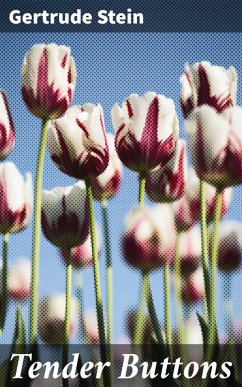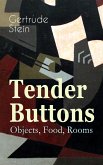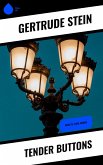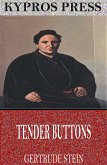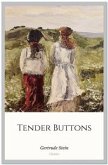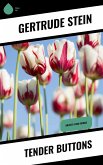In "Tender Buttons," Gertrude Stein breaks conventional boundaries of language and structure, presenting a collection of three distinct sections'Äî'ÄòObjects,'Äô 'ÄòFood,'Äô and 'ÄòRooms'Äô'Äîthat deconstruct the relationships between words and their meanings. With her experimental prose characterized by a playful and often surreal rhythm, Stein challenges readers to engage with the minutiae of everyday life in ways that provoke thought and reflection. The book exemplifies early 20th-century modernism, encapsulating the shift towards abstraction and the exploration of perception that marked this significant literary movement. Gertrude Stein (1874-1946) was a pivotal figure in the modernist literary landscape, renowned for her association with avant-garde artists and writers in Paris, including Picasso and Hemingway. Her upbringing in a multicultural environment and extensive education, particularly her studies in psychology, informed her innovative approach to literature. Stein's desire to elevate the mundane and to experiment with narrative forms can be seen as a response to the rapidly changing world around her, as society grappled with the effects of industrialization and war. "Tender Buttons" is a must-read for those interested in the evolution of contemporary Literature. It invites the reader to abandon preconceived notions of narrative and meaning, boldly engaging with the text as an art form in itself. This book is essential for anyone wishing to explore the avant-garde movements of the early 20th century, as it embodies Stein'Äôs influential legacy.
Dieser Download kann aus rechtlichen Gründen nur mit Rechnungsadresse in A, B, BG, CY, CZ, D, DK, EW, FIN, F, GR, H, IRL, I, LT, L, LR, M, NL, PL, P, R, S, SLO, SK ausgeliefert werden.

